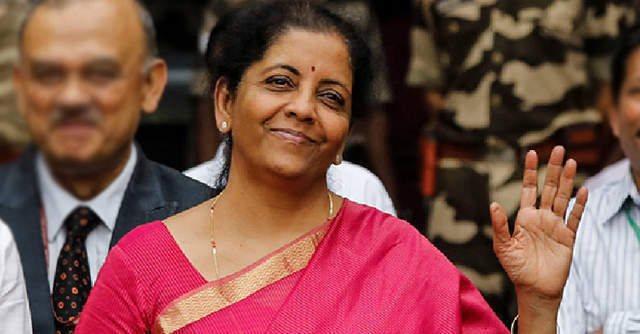
Economic stimulus package 2.0 lists relief for MSMEs: Highlights


On day 50 of the nationwide lockdown, finance minister Nirmala Sitharaman provided details about the Rs 20,00,000 crore stimulus package that is expected to reset the Indian economy.
The FM’s briefing on May 13 came a day after Prime Minister Narendra Modi announced the stimulus package 2.0 to revive the economy amid the Covid-19 pandemic.
Micro, small and medium enterprises (MSMEs), non-banking finance institutions (NBFCs), housing finance companies (HFCs), micro finance institutions (MFIs), employee provident fund (EPF), real estate and power sector are among the key beneficiaries of the plan.

Read: Coronavirus India LIVE updates
The first phase of the announcement by Sitharaman, who chairs the Economic Response Task Force, was made on March 26 for an amount of Rs 1,70,000 crore. It addressed only compliance and taxation relief for MSMEs.
The latest announcement made under the Atma Nirbhar Bharat Abhiyaan-- Hindi for self reliant India project-- includes working capital loans and sectoral concessions as well as liquidity injections.
Salient features of the announcement are:
- Revised MSME definition by increasing the upper limit of investment. According to the new definition for MSMEs, companies with an investment of less than Rs 1 crore are classified as micro enterprises, those with less than Rs 10 crore as small and companies with investment less than Rs 20 crore investment will be classified as medium enterprises. A new clause on turnover has also been added.
- Term loan at concessional rate of interest for MSMEs for those with outstanding dues of upto Rs 25 crore and turnover of Rs 100 crore. The loans will provide 20% working capital finance to these MSMEs without guarantee and collaterals, with a tenure of four years and a moratorium of 12 months. This will provide liquidity of Rs 3,00,000 crore to the sector and benefit 45 lakh MSMEs
- Provisions for Rs 20,000 crore in the loan was announced for stressed MSMEs. Of this, the government will provide credit guarantee trust for micro and small enterprises with Rs 4,000 crore. Promoters can borrow up to 15% of their stakes in the company with a limit of Rs 75 lakh.
- An equity fund of funds for the MSME sector with Rs 10,000 crore and is likely to mobilise Rs 50,000 crore. This will be operated with leverage of 1:4 through a Mother fund.
- E-market linkage for MSMEs to replace trade fairs and exhibitions.
- Extension on employees provident fund contribution by the government for 12% each on behalf of employer and employee under the Prime Minister Gareeb Kalyan Package will be extended to August 2020. Total benefits will accrue to Rs 2500 crore.
- Statutory provident fund contribution from employer and employee will be reduced to 10% each from the existing 12% for the next three months.
- Under special liquidity scheme by the Reserve Bank of India (RBI), Rs 30,000 crore will be provided by RBI for investments made in primary and secondary market transactions in investment-grade debt paper of NBFCs, HFCs and MFIs.
- Power Finance Corporation and Rural Electrification Corporation will infuse Rs 90,000 crore liquidity in DISCOMS (distribution companies) in two equal instalments to pay their dues to transmissions and generation companies.
- Extension of six months to complete contractual obligation for contractors by railways, Ministry of Road Transport and Highway and Central Public Works Department.
- Registration and completion date for all registered real estate projects to be extended by six months by state governments, with a provision for further extension of three months.
- Pending income tax refunds for charitable trusts, non-corporate business and proprietorship, partnership and LLPs and cooperatives will be credited.
- Tax deduction at source for all non-salaried payment to residents and tax collected at source rate to be reduced by 25% for the period of 2020-21. The due date for all IT returns for the assessment year 2020-21 will be extended to November 30, 2020.

